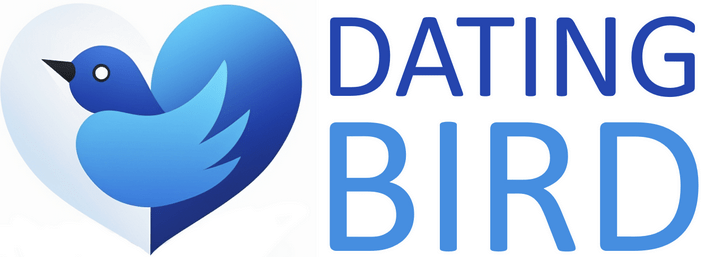Dating for Young Adults refers to the process through which individuals, typically aged 18 to 25, meet and interact with potential partners over the internet. This practice in Canada involves using online platforms, apps, and social media to establish romantic or casual relationships.


Detailed Explanation of Dating for Young Adults:
In the realm of online dating, the concept of Dating for Young Adults primarily caters to individuals in the age bracket of 18 to 25. This demographic, often dubbed as 'digital natives,' are no strangers to the internet and its intricacies. As such, they are more inclined to use online platforms to explore potential relationships. This practice is particularly prevalent in Canada, where a significant proportion of young adults resort to online dating. The purpose of such dating is diverse, ranging from seeking long-term relationships and companionship to pursuing casual dates and friendships.
"Online dating provides young adults with a convenient platform to connect with potential partners beyond their immediate social circles, thus broadening their horizons in terms of relationships."
In the context of online dating, Dating for Young Adults typically involves the use of specific dating websites, apps, and social media platforms that cater to this age group's unique needs and preferences.
What are good examples of Dating for Young Adults?
Real-world examples of Dating for Young Adults can be seen in the proliferation of online dating platforms specifically tailored for this demographic. Websites such as Tinder, Bumble, and OkCupid have gained immense popularity among young adults due to their user-friendly interfaces, a wide range of features, and a diverse user base. These platforms allow young adults to connect with individuals who share similar interests, hobbies, and relationship goals.
"Online platforms like Tinder, Bumble, and OkCupid are prime examples of the modern landscape of Dating for Young Adults."
In addition, social media platforms such as Instagram and Snapchat also serve as informal dating platforms, where young adults can connect and interact with potential partners. Various features like direct messaging, story sharing, and location tagging enable young adults to express themselves and connect with others in a more casual and relaxed environment.
It's important to note that while these platforms provide opportunities for connection, the nature of these interactions can vary widely, from seeking serious relationships to casual dating or friendships.
What really matters in Dating for Young Adults? Or not?
In the context of online dating, several factors are pivotal in shaping the experiences of young adults. Authenticity is a significant consideration, with young adults valuing genuine profiles that accurately represent an individual's personality and interests. Safety and privacy also hold paramount importance, as young adults navigate the online dating world while protecting their personal information. The ease of use of the platform is another crucial aspect, as young adults prefer intuitive, user-friendly interfaces that facilitate smooth communication.
"The factors of authenticity, safety and privacy, and ease of use play a significant role in shaping the online dating experiences of young adults."
Additionally, the diversity of the user base and accessibility of the platform are also essential. A diverse user base provides more opportunities for connection, while platforms that are accessible across various devices cater to the mobile-oriented lifestyle of young adults.
- Authenticity: Genuine profiles that accurately represent an individual
- Safety and Privacy: Protection of personal information
- Ease of Use: User-friendly interfaces
- Diversity: Broad user base offering more opportunities for connection
- Accessibility: Platforms that are adaptable across various devices
These factors collectively contribute to a successful and enjoyable online dating experience for young adults. It's crucial to remember that the weightage of these factors can vary depending on individual preferences and goals in the realm of online dating.
Why is Dating for Young Adults so important? Or not?
Dating for young adults holds a significant place in the online dating realm, given the age group's technological savviness and openness to new experiences. This segment of dating services is particularly relevant as it caters to a demographic that is in the prime of their life, exploring various aspects of relationships and personal growth.
"The role of dating platforms for young adults extends beyond mere matchmaking; it serves as a space for self-exploration, identity affirmation, and social connection."
Online dating platforms designed for young adults provide an avenue for them to connect with like-minded individuals, fostering both romantic and platonic relationships. They also serve as a safe space for young adults to explore their identities, preferences, and relationship styles. Moreover, these platforms enable young adults to build their social circles, which is particularly beneficial in today's digital age where physical interactions are increasingly being replaced by virtual ones.
In essence, the importance of dating for young adults in the online context lies in its multifaceted role as a tool for connection, exploration, and personal growth.
What are the challenges in Dating for Young Adults?
The challenges that young adults face in the realm of online dating are diverse and multifaceted. For starters, navigating the digital dating landscape can be overwhelming due to the sheer number of platforms and users. It can be difficult to discern genuine profiles from those that are fake or misleading.
Another key challenge is the risk of encountering inappropriate or harmful content. Young adults, due to their relative inexperience, may be more vulnerable to manipulation or exploitation by unscrupulous individuals.
"The digital dating landscape can be a minefield for young adults, fraught with challenges such as fake profiles, inappropriate content, and potential manipulation."
Moreover, the pressure to conform to societal expectations or to portray oneself in a certain way can lead to stress and anxiety. The high-speed, high-stakes nature of online dating can also contribute to feelings of burnout or disillusionment.
Lastly, young adults may struggle with balancing online dating with other aspects of their lives, such as school, work, and social obligations. This can lead to a lack of focus or engagement in other important areas.
In conclusion, while online dating presents young adults with opportunities for connection and self-discovery, it also poses significant challenges that need to be addressed.
What is the difference between Dating for Young Adults and Adult Dating?
Dating for young adults and adult dating, while sharing commonalities, are fundamentally different in their approach and expectations. Young adult dating, particularly in the online sphere in Canada, tends to be more exploratory in nature. It's a phase where individuals are discovering their romantic preferences, often involving casual dating and short-term relationships. It's a time of self-discovery and experimentation. Adult dating, on the other hand, usually involves individuals who have a clearer understanding of what they're looking for in a partner, often leading to more serious, long-term relationships. While both forms of dating occur online, the platforms used may differ, with young adults leaning more towards dating apps and adults opting for more traditional online dating sites. Understanding these differences can help clarify the unique dynamics at play in both young adult and adult online dating landscapes in Canada.
FAQ
Question: What is meant by 'Dating for Young Adults'?
Question: What are some good examples of Dating for Young Adults in Canada?
Question: What factors are important in Dating for Young Adults?
Question: Why is Dating for Young Adults significant in the field of online dating?
Question: What are the challenges faced in Dating for Young Adults?
Question: What is the difference between Dating for Young Adults and Adult Dating?
Related articles
Articles with related questions
Written by:
 Nathan
Nathan stands for quality content. He checks all articles critically and conscientiously.
Nathan is our team skeptic. He puts all tests and reports through their paces.In his opinion, if an article does not contain at least 500 words, it is not well researched.
Nathan
Nathan stands for quality content. He checks all articles critically and conscientiously.
Nathan is our team skeptic. He puts all tests and reports through their paces.In his opinion, if an article does not contain at least 500 words, it is not well researched.
